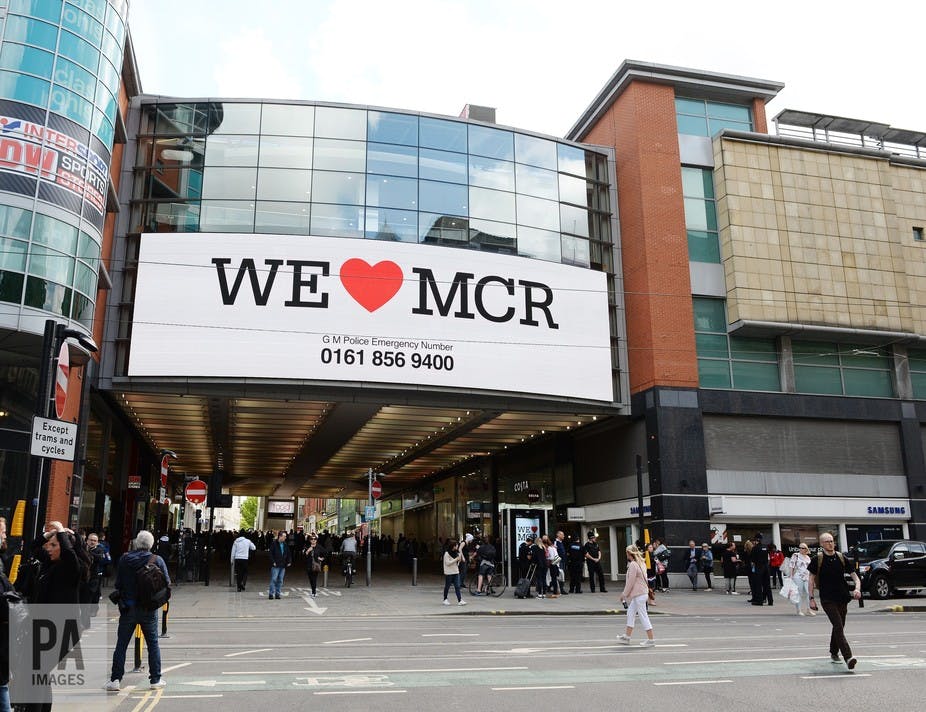As news of the Manchester bomb attack broke, the sense of horror and dread became palpable among all of us who call Manchester our home and who have grown up going to concerts at the city’s arena. A terror attack had taken place – as we had feared it might – but children were targeted. Kids at a pop concert. Up late on a school night, making memories with their families and friends. Now we all have a shared memory of that terrible night. The University of Salford’s Caroline Cheetham describes how the nightmare unfolded, how parents still seek their children and how Manchester’s residents are finding strength in each other.
The 2017 general election campaign has been paused, on the agreement of all parties, as the UK tries to come to terms with this attack. But times like these also call for real political leadership, writes Andy Price, and an answer to the question: why does this keep happening?
The apparent suicide bombing was also the first major test of Manchester’s newly elected “metro mayor”, Andy Burnham. Paula Keaveney looks at how Mayor Burnham spoke for the city in a speech which covered the “evil” of the attack, the shared grieving and the need for the city to carry on in unity.
As the police investigation continues, Dan Lomas says the Manchester bombing is a stark reminder of how vulnerable we are to a host of complex and deadly security threats. And David Lowe asks if we are doing all we can to make our sporting and concert venues secure in these times of danger. Should we now be considering searching people as they leave venues as well as upon entry? Times of heightened threat, sadly, require heightened vigilance.
You can follow our continuing coverage of the Manchester attack here.

